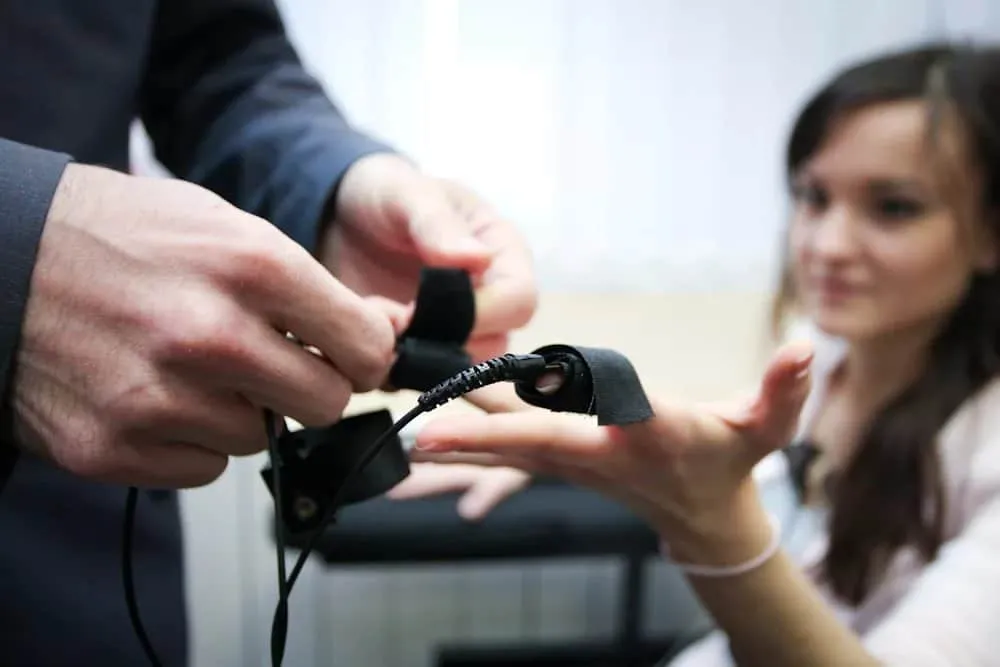Introduction: A Tool for Truth or a Controversial Practice?
The polygraph test, often sensationalised in television crime dramas, has long fascinated the public with its promise of detecting lies through physiological signals. In the UK, the use of polygraph testing has grown in recent years, moving from the realm of fiction and private investigations into formal law enforcement procedures. While the term “lie detector” may suggest a tool that can unfailingly spot deceit, the reality of polygraphy is far more nuanced. Rooted in the analysis of biological responses such as heart rate, blood pressure, respiratory rate, and skin conductivity, the polygraph test has sparked both interest and debate among psychologists, legal experts, and civil rights activists. This article delves into how the polygraph test in the UK, exploring its methodology, legal standing, effectiveness, controversies, and implications for the future of criminal justice and security.
The Science Behind the Polygraph: How Does It Work?
A polygraph test measures several physiological indicators to determine whether a person is being deceptive. The assumption is that lying triggers a stress response in the body, which manifests in measurable changes in autonomic functions. During a polygraph examination, sensors are attached to the individual to monitor variables such as heart rate, blood pressure, respiration, and skin conductivity (electrodermal activity). These sensors are linked to a computer or chart recorder that produces a polygraph chart—a visual representation of the body’s responses over time.
The process typically starts with a pre-test interview where the examiner establishes a baseline for the subject’s physiological responses by asking a series of neutral questions. This is followed by a series of relevant and control questions during the actual test. Relevant questions pertain directly to the issue under investigation, while control questions are unrelated but emotionally arousing. The examiner then interprets the results, looking for significant deviations in physiological responses that may suggest deception.
Despite its scientific presentation, critics argue that the polygraph does not directly detect lies but rather measures stress responses, which may or may not be associated with dishonesty. Factors such as anxiety, nervousness, or medical conditions can affect the results, raising questions about the test’s reliability.
Polygraph Testing in Practice: Who Takes the Test and Why?
The majority of polygraph tests conducted in the UK are currently administered to individuals under post-release supervision, particularly sex offenders and terrorist offenders. These tests are conducted by trained polygraph examiners who work under the auspices of Her Majesty’s Prison and Probation Service (HMPPS). The aim is to manage risk and enhance public safety by ensuring that offenders are adhering to the conditions of their release.
During these tests, offenders may be asked questions about their compliance with licence conditions, such as avoiding contact with minors or staying away from certain locations. A deceptive response, or refusal to take the test, may be taken as a sign that the individual poses an increased risk to the community.
Outside of the criminal justice system, polygraph testing is also used in the private sector, although this area remains less regulated. Some private companies offer lie detection services for cases involving infidelity, employment disputes, or theft allegations. However, these tests are often controversial and their use in employment contexts can raise serious ethical and legal issues, particularly with respect to consent, privacy, and the potential for coercion.
Training and Standards for UK Polygraph Examiners
Polygraph testing in the UK is a highly specialised field, and not just anyone can administer these tests. The government has put in place specific training and accreditation requirements for polygraph examiners working within the public sector. These professionals typically undergo intensive training at recognised institutions, such as the UK Polygraph Association or the American Polygraph Association, and must adhere to strict ethical and procedural standards.
The UK government’s own polygraph examiners are required to undergo continual professional development and are subject to quality assurance processes, including peer reviews and audits. This is intended to ensure consistency, accuracy, and professionalism in how the tests are conducted and interpreted. Despite these safeguards, however, the inherently subjective nature of polygraph analysis means that results can still vary depending on the examiner’s judgment and the examinee’s individual physiological responses.
The Controversy: Reliability, Ethics, and Civil Liberties
The polygraph test remains one of the most controversial tools in modern forensic science. Critics argue that it is based on flawed assumptions about human psychology and that its results are too easily influenced by unrelated factors. While proponents claim that the polygraph can achieve accuracy rates of up to 90%, independent studies have reported significantly lower reliability, with false positives (where truthful individuals are judged to be lying) and false negatives (where liars are judged to be truthful) occurring at concerning rates.
From an ethical standpoint, the use of polygraph testing also raises questions about consent and coercion. In the criminal justice context, although participation in the test is technically voluntary, refusal to comply may lead to increased supervision or even re-incarceration, blurring the lines between voluntary participation and compelled compliance.
Civil liberties advocates have expressed concern about the test’s use as a form of psychological surveillance, particularly in its extension to terrorism suspects, where the stakes are especially high. There are fears that the reliance on a method with questionable scientific backing could undermine individual rights and lead to unjust outcomes.
The Role of Technology and Future Directions
As with many areas of criminal justice and security, polygraph testing is not immune to technological evolution. Advances in neuroimaging, artificial intelligence, and biometric analysis are leading some researchers to develop alternative or supplementary methods for detecting deception. Functional MRI (fMRI), for instance, has been explored as a potential tool for mapping brain activity associated with lying. Similarly, AI-based systems that analyse facial microexpressions and vocal stress are being tested as possible replacements for traditional polygraph tests.
However, these technologies are also fraught with ethical and practical challenges, not least the difficulty of distinguishing intentional deceit from stress or anxiety. While they may eventually offer improvements in accuracy or objectivity, they too must pass rigorous scientific and legal scrutiny before being integrated into formal systems.
In the meantime, the UK appears set to continue using the polygraph test as a tool for offender management rather than criminal conviction. Its role is likely to expand in areas such as counter-extremism, domestic abuse monitoring, and even immigration control, although each of these applications brings its own set of legal and ethical concerns.
Public Opinion and Cultural Perception
Public perception of polygraph testing in the UK is mixed. On one hand, there is a general fascination with the idea of a “lie detector” and a belief in its potential to uncover hidden truths. Television programmes, from crime dramas to reality shows, have contributed to a somewhat romanticised view of the polygraph, often portraying it as a definitive arbiter of truth. On the other hand, increasing public awareness of the test’s limitations has led to growing scepticism, particularly among civil rights groups and legal professionals.
Surveys conducted in the UK have shown that while many people support the use of polygraph testing in high-risk offender supervision, fewer would support its use as evidence in court or in everyday employment settings. There is also a broader societal debate about the balance between public safety and personal freedom, and whether tools like the polygraph infringe too heavily on individual rights in pursuit of security.
Conclusion: A Tool Best Used with Caution
The polygraph test in the UK occupies a complex space between science, psychology, and law. While it is not admissible in court, it plays an important and expanding role in managing the risk posed by serious offenders. As a tool for encouraging disclosure rather than proving guilt, it has found a niche in probation and parole settings, where its benefits appear to outweigh its limitations.
However, the polygraph should not be viewed as a magic bullet for lie detection. Its reliance on physiological indicators that can be influenced by a range of factors makes it inherently fallible. For this reason, its use must be carefully regulated, its results interpreted cautiously, and its role continually reassessed in light of emerging technologies and ethical standards.
As the UK continues to grapple with complex issues of crime, security, and individual liberty, the polygraph test serves as a powerful reminder of the challenges involved in seeking truth in an uncertain world. Its future will depend not just on technological advances, but on society’s willingness to question the tools it uses in the pursuit of justice.

